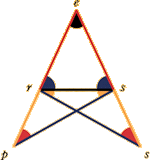Rosanna Warren
In DIALOGOS George Kalogeris has fluently effaced himself. And in so doing, he has presented a Classic—that is to say, an anti-Romantic—and timeless model of writing, of origins and originality. Paradoxically, from such self-effacement arises a powerful and singular authorial voice. DIALOGOS strikes a consistent tone audible through the plural identities, eras and languages of its chosen poets: stoic, dignified, unfussy, natural, and at times disarmingly vernacular.
Kalogeris’s achievement in style might be seen as resembling Robert Lowell’s in Imitations, but it stands in diametric opposition to that work. Lowell roughed up and ironed out the poems he translated so that they all—Sappho, Baudelaire, Montale—became train lines to the Grand Central Station of Lowell’s massive and dramatic personality. The lover of Lowell rejoices; the lover of Sappho or Baudelaire mourns, or winces, or grins and bears it. By stepping behind his paired poets, Kalogeris doesn’t precisely vanish, since he remains as a tone of voice and as a moral lens defining the focus of the whole. But he throws the emphasis away from the personality of the translator and onto the mysterious, atemporal unity of imagination the pairings propose. The effect is startling, revelatory. Even as one holds in mind the historical and cultural chasms separating his writers—Borges and Cavafy, Rilke and Sappho—one is seduced by the eerie resemblances, the implicit and explicit communions between them.
Fluent self-effacement, I suggested. When one looks for the occult logic in the arrangement, the most persistent image turns out to be that of flow. We see and hear it in the afternoon light turning to dust and the waterwheel yoked to “The flowing water’s sweet dreams” of poetry itself in Machado’s “The Waterwheel.” That flow echoes in the flock of birds, liberty, spring rain, and the scent of almonds flowing past in René Char’s “Conduite”; in the flowing dance of the Muses in Pindar’s “Olympian 14”; in the movement of Hölderlin’s little brook, seen as if through God’s eyes, “Eyes filled with the flow of galaxies”; and it finds its culmination and its essence in Lucretius’s atoms streaming away in all matter, air, fire, and water. Such flow is the essence of literary art, streaming from one imagination to another and making creation possible. It is made perceptible and given tangible truth in Kalogeris’s own subtle and mesmeric rhythms:
Although the atoms themselves would still be falling Through empty space, falling like drops of rain Falling all by themselves forever after.
What does this book propose? A hymn to rhythm itself as a form of meditation. An ideal of selfless and passionate contemplation. A communion with the dead that is neither greedy nor anxious. Sophoclean dignity and detachment that leave breathing space for compassion. A fraternity of the imagination. A model of composition that transcends both translation and self-assertion, and brings us, in reading, into the heart of the matter of writing.
George Kalogeris teaches English Literature and Classics in Translation at Suffolk University in Boston, Massachusetts. He is the author of Camus: Carnets (Pressed Wafer Press, 2006), a book of poems based on the notebooks of Albert Camus. His translations have appeared recently in AGNI, Harvard Review, and Poetry.
Rosanna Warren is the author of four collections of poetry, most recently Ghost in a Red Hat (W.W. Norton 2011). She has also published a translation of Euripides's Suppliant Women (with Stephen Scully; Oxford, 1995), a book of literary criticism, Fables of the Self: Studies in Lyric Poetry (W.W. Norton & Company, 2008), and has edited several books, including The Art of Translation: Voices from the Field (Northeastern, 1989). She has received awards from the Academy of Arts and Letters and has won the Lamont Poetry Prize. She teaches at Boston University, where for the past thirty years she has directed the Translation Seminar.

















